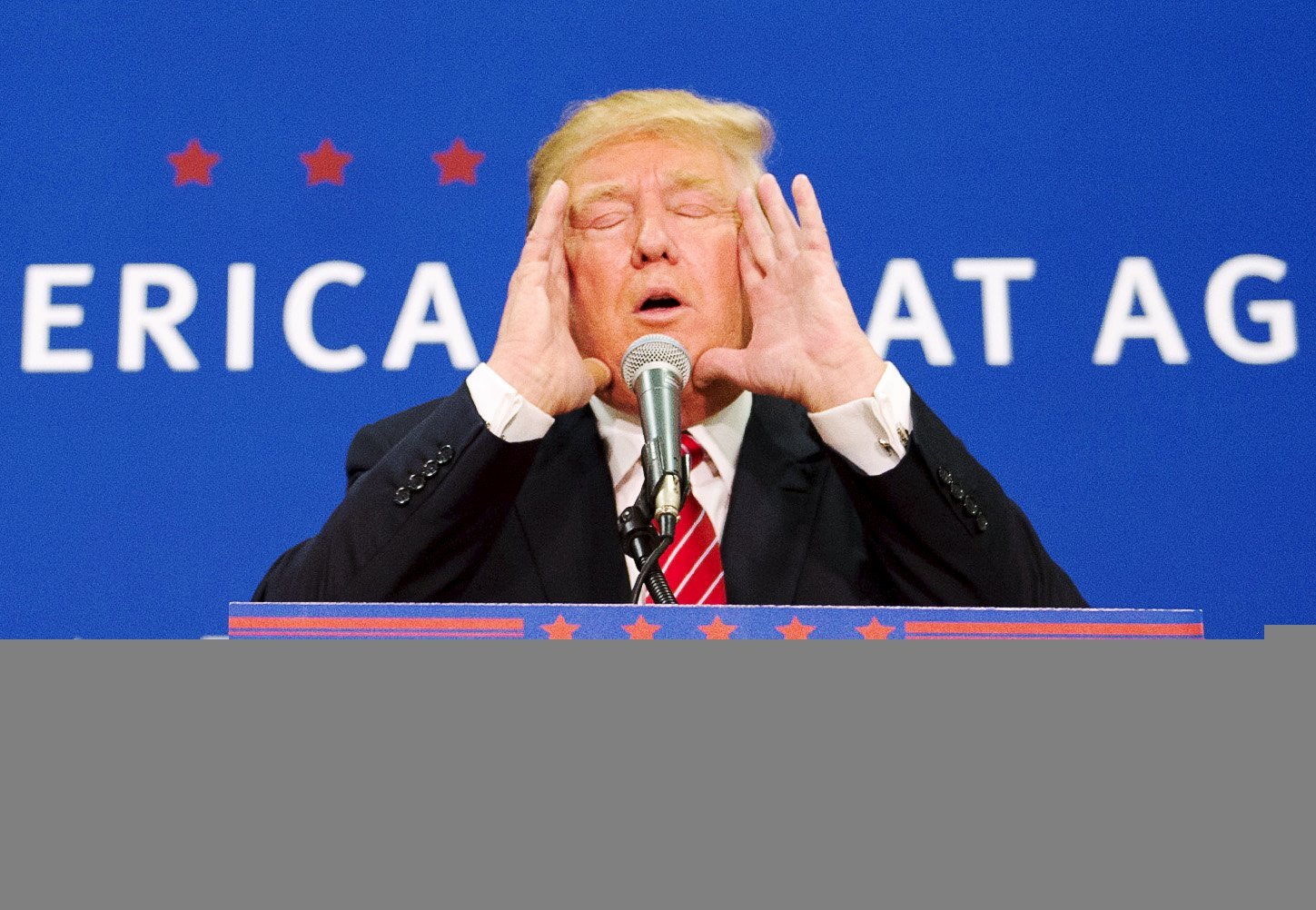
(REUTERS/Gretchen Ertl)
A year ago barely anyone considered Donald Trump’s presidential race seriously, but today the Republican front runner has real chances to become the 45th President of the United States. Despite sweeping scandals and controversies surrounding his candidacy, as a President Trump might choose to abandon his eccentric behavior and introduce unconventional perspectives to U.S. foreign policy (according to his statements). The Kremlin is arguably the toughest American international opponent, which Trump puts into the same category as ISIS but still wants to get along with. Is there a chance for better U.S.-Russia relations under Trump?
The Obama administration has brought U.S.-Russia relations to a policy cul-de-sac. The worst crisis between the two countries since the Cold War era has emerged as a result of Russia’s new aggressive foreign policy and the American leadership’s unwillingness to tackle it. Trump will face a difficult challenge if he actually aims to revive relations with the Kremlin. Dmitry Trenin, director of the Carnegie Moscow Center, says that “Russia will engage only when it is satisfied that the United States treats it as an equal and takes Russian interests into account”. The rapprochement might come at a high cost as Moscow blames previous administrations starting with Clinton’s for continuously violating its geopolitical interests.
As objectionable as it seems, the only way Russia could agree to press the restart button is after seeing real concessions and Trump should be the one to chip in. His decision to name Carter Page as a foreign policy advisor, a man who blamed NATO’s aggressive policies in part for provoking Russia, underlines his eagerness to go ahead in rekindling bilateral relations. The Republican candidate has also recently claimed that he wants to get along with Russia, stated that he “likes that Putin is bombing the hell out of ISIS,” and agreed that Russia is going to end up dominating Ukraine.
Trump has gone a step further, portraying NATO as obsolete, deeming its structure irrelevant in combating modern threats such as terrorisms. He has also added that the organization was created to repel the Soviet threat and Russia is currently less dangerous. NATO’s expansion eastward and the prospective memberships of former Soviet states such as Moldova, Georgia and Ukraine are some of the major and immediate issues for the Kremlin that cannot be left ignored if progress is to be made in the U.S. relationship with Moscow.
The Trump’s policy view toward Russia might seem reasonably effective but in reality it is not. Obama previously advocated for a ‘fresh start’ with a ‘reset’ policy in U.S.-Russia relations. He went against domestic opposition and offered concessions such as halting the plan to build a missile defense system in Europe. It worked initially, but did not last long. If Trump wants to launch a “reset 2.0,” what are the chances that it will work?
The Kremlin perceives American foreign policy as a well-regulated machine that always drives in the same direction irrespective of the driver. Obama has tried with his charm and enthusiasm to engage Putin, however, the Russian president simply did not take him seriously. During the famous breakfast at Putin’s posh residence at Novo-Ogaryovo, it was evident that in Putin’s mind the American political establishment would always be anti-Russian and Obama was too naïve and idealistic in his quest for change. Although the Russian president politely listened to Obama’s ideas, he was never ready to adjust Russia’s strategy.
Putin is a fervent advocate of the 19th century Realpolitik and it takes more than pompous statements and promises to break the ice for him. Moreover, after dealing with both Bush and Obama administrations Putin has grown cautious to trust to the American leaders. Bush was allegedly his friend although he was arming and training Georgian army, and Obama approached him with a ‘reset’ policy but ended up with defending a pro-EU and anti-Russia revolution in Ukraine.
Trump might be tempted to think that a “bromance” with Putin will help in dealing with ‘a one-man state’ (as he perceives Russia).His controversial call to ban Muslims from entering the United States resurrects a not less scandalous statement that Putin made in 2002, when he to castrate those wanting to become “Islamic radicals”. Putin also called Trump “the absolute front-runner in the presidential race” and Trump said that “would probably get along very well with Putin.”
Both leaders might actually get along well, but Trump is mistaken if he thinks that Putin will change his views just because of good interpersonal relations. Putin and Bush cherished a long-term friendship, but it did not stop both countries from nearly slipping into an open fight during the Georgian “five day war” in 2008.
A Trump presidency could certainly bring some positive dynamics to U.S.-Russia relations but will not be a game-changer. Putin cherishes one’s ability to be ‘man of his word’. Trump should work hard on this aspect more than anything else.